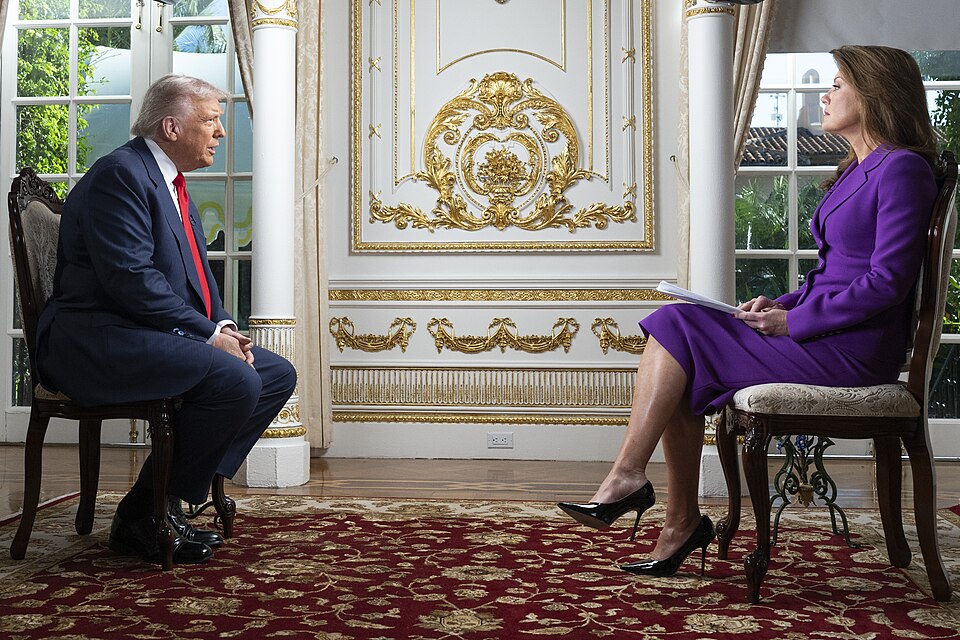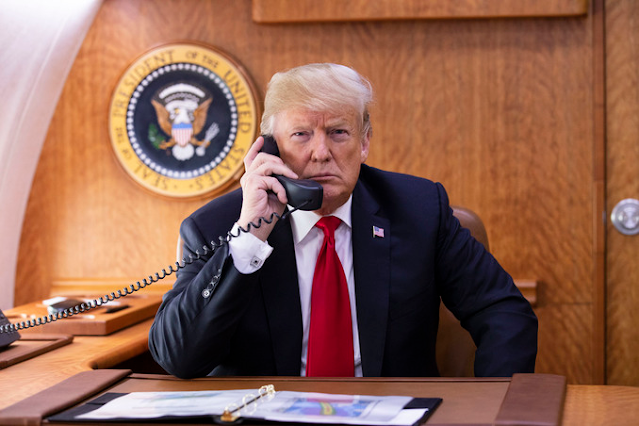In late July 2025, The Wall Street Journal and other outlets reported that U.S. Attorney General Pam Bondi had told President Donald Trump his name was listed in Justice Department files related to convicted sex offender Jeffrey Epstein. The reports said Bondi and her deputy briefly met with Trump in May and noted that his name appeared “multiple times” among the investigation records, along with those of “many other high-profile figures.” Crucially, officials also stated the department did not plan to release further Epstein documents to the public. The White House quickly dismissed the news as “fake news stories,” but the controversy highlights ongoing disputes over the handling of the Epstein case.
Background: The Epstein Investigation and “Epstein Files”
Jeffrey Epstein, a wealthy financier, was convicted of procuring a minor for prostitution in Florida in 2008 and faced a federal sex-trafficking indictment in New York in 2019. He died by suicide in a Manhattan jail in August 2019 while awaiting that trial. Epstein’s associate, Ghislaine Maxwell, was later convicted in 2021 of child sex trafficking and sentenced to 20 years in prison. During those investigations, authorities assembled a large volume of evidence – thousands of pages of documents, electronic files, flight logs, contact books, videos, and witness interviews – sometimes referred to as the “Epstein files.” Much of this material remains under seal to protect victims’ privacy and because grand jury evidence is secret. Some records have been made public: for example, flight logs from Epstein’s private jet (sometimes called the “Lolita Express”) and a contact book (often dubbed the “little black book”) were introduced as evidence in court and released at trial.
In July 2025, the Justice Department summarized the findings of its exhaustive review of the Epstein files. FBI and DOJ agents had conducted digital and physical searches of all holdings and found no new evidence of wrongdoing by others. The DOJ stated there was “no credible evidence… that Epstein blackmailed prominent individuals” and no “incriminating ‘client list’” implicating uncharged figures. Investigators noted that much of the remaining material consisted of gruesome child pornography of Epstein’s victims, which cannot lawfully be released. Overall, officials concluded that releasing additional content was “not appropriate or warranted.” They emphasized that just because a person’s name appears in the files does not mean any crime was committed by them; sometimes investigators collect information on people who were simply associates or interview subjects.
New Revelation: Trump Learned His Name Was in the Files
According to the WSJ report, Bondi and Deputy Attorney General Todd Blanche met with President Trump in May 2025 to review the results of this Epstein file review. The meeting came after DOJ officials had gone through what Bondi described as a “truckload” of documents. During the briefing, the attorneys told Trump that his name appeared multiple times among the materials, alongside many other well-known figures. Reports stress that the information about Trump’s name was treated as unverified hearsay – for example, Epstein’s pilots’ logs, social contacts, or offhand remarks – and that officials did not view it as evidence of any crime. Bondi’s statement (with Blanche) emphasized that “nothing in the files warranted further investigation or prosecution.” The DOJ also noted it had filed a motion to unseal grand jury testimony in the case, suggesting they found nothing dispositive in the interviews.
Importantly, the WSJ article and associated coverage said this briefing to Trump occurred before the Justice Department announced its decision to withhold more documents from public release. DOJ officials in early July stated they would not make additional Epstein records public, a reversal of Trump’s previous campaign pledge for “full transparency.” Those DOJ communications, described in an unsigned memo, came after Bondi’s briefing. The timing raised eyebrows among some conservatives, who had expected the administration to release secret files. (In Congress, Democrats have since subpoenaed Maxwell’s testimony and urged the release of more documents.)
Trump and Epstein: Known Associations
Donald Trump’s social ties to Jeffrey Epstein are well-documented in the public record. The two men were acquainted during the 1990s and early 2000s, often socializing in Palm Beach, Florida, and New York. Trump once called Epstein “a terrific guy” who liked young women, but he later said they had a “falling out” roughly 15 years ago. During Epstein’s 2019 trial preparations, an associate testified that Trump flew on Epstein’s private plane several times in the 1990s, though Trump has denied ever flying on it. Epstein’s address book – made public at trial – also lists Trump and some of his family members by name, along with hundreds of others in high society. Trump has consistently insisted he did nothing wrong: he notes that their friendship ended decades before Epstein’s crimes became known, and he was never accused of any offense in the Epstein case.
Reactions from Trump’s Camp and the DOJ
White House: The initial media stories triggered a swift rebuttal from Trump’s team. White House spokesman Steven Cheung rejected them as partisan “fake news,” saying Trump had long since kicked Epstein out of Mar-a-Lago for “being a creep.” In parallel, President Trump himself downplayed the matter when asked by reporters. He said he had only received “a very quick briefing” on the Epstein documents and did not believe anything untoward was found. Notably, after these reactions, another White House official told Reuters that the administration was not disputing that Trump’s name appears in some documents – in fact, he noted that the binders given to outside conservative figures this spring already included Trump in the list of names.
Justice Department: The DOJ has also spoken out, albeit indirectly. DOJ did not comment on the media reports themselves, but Bondi and Deputy AG Blanche issued a joint statement on the broader Epstein review. They reiterated that the FBI had gone through the records and found “nothing in the files warranted further investigation or prosecution,” and they said they had sought to unseal the grand jury transcripts for public record. On the subject of withheld documents, DOJ officials pointed to legal constraints: grand jury evidence is secret unless a judge orders disclosure, and much of Epstein’s evidence involves child abuse content that cannot be made public. In fact, U.S. District Judge Robin Rosenberg in Florida rejected the DOJ’s motion to unseal the transcripts, saying she was “tied” by the secrecy rules. Thus, according to the government, the decision to stop short of releasing more files was based on longstanding legal standards and the conclusion of their internal review.
Political and Legislative Fallout
The episode has become a flashpoint in Washington. Within hours, Congressional Democrats such as Sen. Adam Schiff called for hearings; Schiff tweeted that Bondi and the FBI director should testify before the Senate Judiciary Committee about the Epstein files. On Capitol Hill, lawmakers from both parties have proposed measures aimed at disclosure. Senator Jack Reed (D-RI) and others introduced a bill requiring the Justice Department to release all Epstein-related documents (with privacy redactions) within 30 days. In the House, Reps. Thomas Massie (R-KY) and Ro Khanna (D-CA) filed a resolution for transparency, although Speaker Mike Johnson has resisted bringing it to a vote. Some Republicans have also expressed mixed views: a few worry about unintentional harm to victims or violating secrecy rules, while others join the call for “full transparency” to restore public trust.
Among President Trump’s conservative base, the revelations have stirred strong interest and suspicion. Certain segments of Trump’s supporters had been pushing the administration to expose what they view as a cover-up of powerful figures in Epstein’s network. The Justice Department’s July decision not to release more files (and its finding that Epstein did not blackmail high-profile individuals) angered many in that camp. Some members of Congress have even attached amendments to spending bills forcing votes on Epstein-file releases, turning the issue into a bargaining chip. In response, the Trump White House and GOP leaders insist they are in favor of revealing credible information, but say they must respect victims’ privacy and the rule of law.
Ongoing legal context: Importantly, none of these developments has changed the legal status of President Trump with respect to the Epstein case. Trump has never been accused of any crime in connection with Epstein, and investigators found no evidence to implicate him. The coverage is tied to Trump’s broader political image and to his broken campaign promise (in 2024) to unseal Epstein records. Separately, Trump in July 2025 sued The Wall Street Journal and its publisher for defamation over a different Epstein-related story (a 2003 letter), which underscores how the topic has become entangled with Trump’s legal and media battles.
In sum, the July 2025 reports underscore the complex legacy of the Epstein scandal. They confirm that President Trump’s name appears in Epstein’s files – as it does in publicly available contact lists and flight logs – but they also emphasize that investigators found nothing incriminating. The Justice Department’s refusal to release more documents remains justified, in its view, by legal constraints and lack of evidence. At the same time, political pressure for transparency continues, and lawmakers on both sides of the aisle are debating how and whether to make more of the Epstein files public. How this will affect ongoing investigations or political dynamics is still unfolding, but it has already deepened scrutiny of how the Trump administration handles politically sensitive information.
Sources: Reporting from The Wall Street Journal, CNBC, Reuters, The Associated Press, Al Jazeera, and DOJ releases has been used to compile this article. All cited facts are drawn from these outlets’ coverage of the July 2025 revelations.









